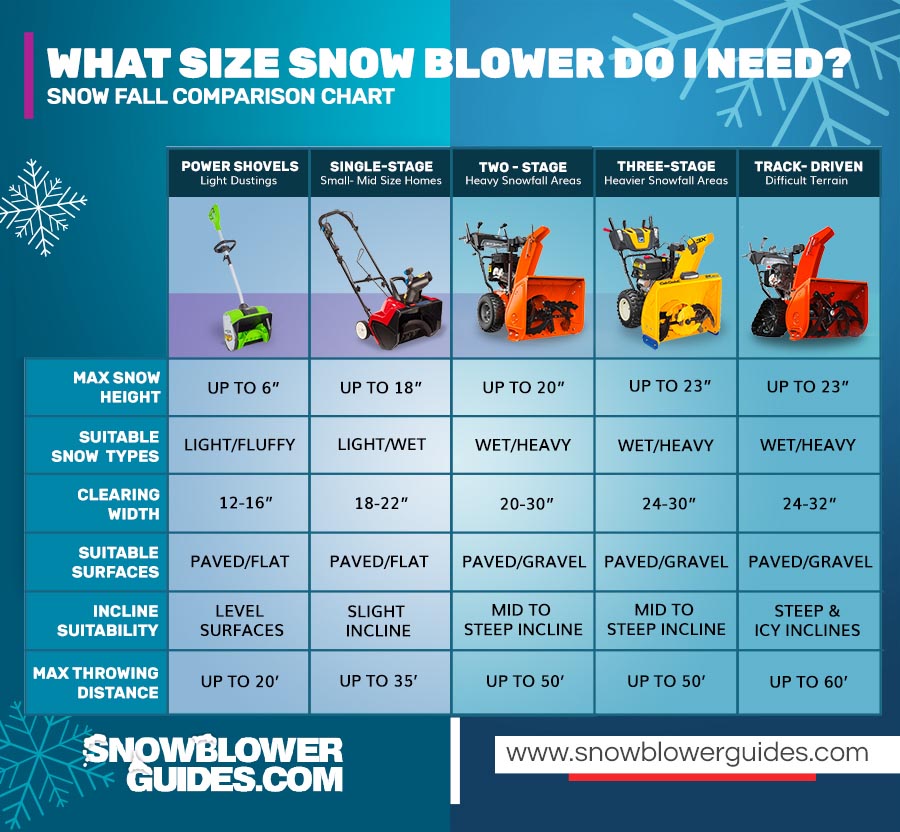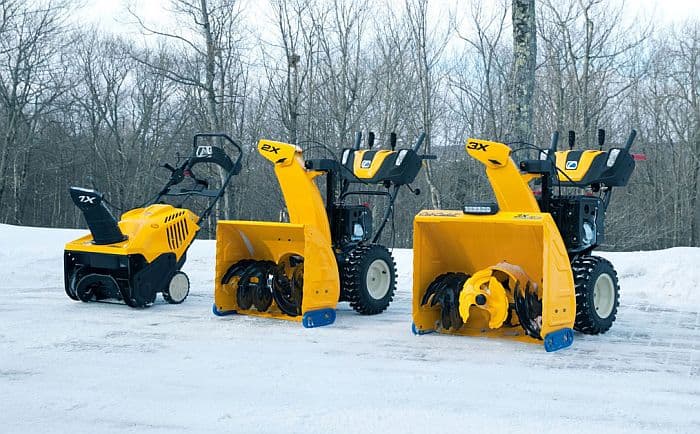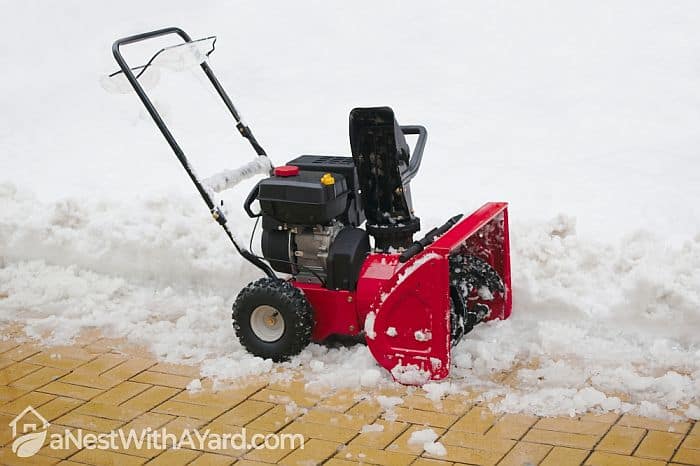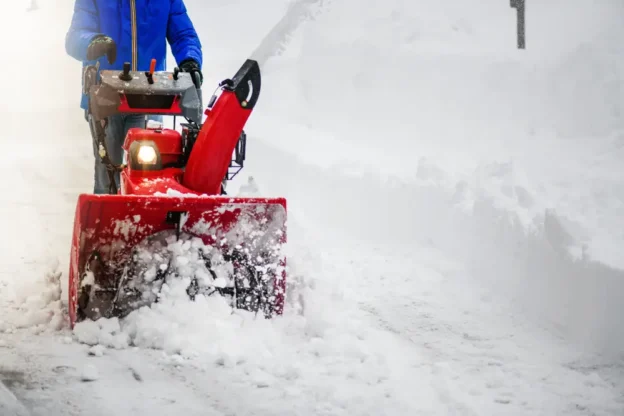Are you tired of shoveling snow every winter? It’s time to invest in a snowblower! But before you rush off to purchase one, you need to determine the right width for your needs. The width of a snowblower refers to the clearing path it can cover in a single pass. This crucial factor will determine how efficiently and quickly you can clear out snow from your driveway or walkway. In this article, we will explore the various factors to consider when determining how wide of a snowblower you need. So, say goodbye to sore muscles and hello to an easier snow removal experience!
Factors to Consider
When it comes to choosing the right snowblower for your needs, there are several factors that you should take into consideration. These factors include the amount of snowfall in your area, the size of your driveway, the type of terrain you have, the frequency of use, and your budget. By considering these factors, you can make an informed decision and find the perfect snowblower for your needs.
Snowfall Amount
the amount of snowfall in your area is an important factor to consider when determining how wide of a snowblower you need. Different snowblowers are designed to handle different levels of snowfall. Here are the three main categories of snowfall and the corresponding snowblower options:
Light Snowfall
If you live in an area with light snowfall, a smaller snowblower with a width of around 20 inches should be sufficient. These snowblowers are lightweight and easy to maneuver, making them ideal for clearing sidewalks and smaller driveways.
Moderate Snowfall
For areas with moderate snowfall, a medium-sized snowblower with a width of around 24-28 inches is recommended. These snowblowers have more power and can handle thicker and heavier snow, making them suitable for clearing larger driveways and walkways.
Heavy Snowfall
If you regularly experience heavy snowfall in your area, you will need a heavy-duty snowblower with a wider width, typically ranging from 28 to 36 inches or more. These snowblowers are equipped with powerful engines and robust features to handle the toughest snow conditions, making them suitable for larger driveways and commercial use.

This image is property of www.snowblowersdirect.com.
Driveway Size
Another important consideration is the size of your driveway. The size of your driveway will determine how wide of a snowblower you need to effectively clear the snow. Here are the different categories of driveway sizes and the corresponding snowblower options:
Small Driveway
For small driveways, a snowblower with a width of around 20 inches is usually sufficient. These compact snowblowers are easy to maneuver in tight spaces and can efficiently clear smaller areas.
Medium Driveway
If you have a medium-sized driveway, which is typically around 2-3 car lengths long, a snowblower with a width of 24-28 inches is recommended. These snowblowers strike the right balance between size and power, allowing you to clear your driveway efficiently.
Large Driveway
For larger driveways, which can accommodate more than three cars, a wider snowblower with a width of 28-36 inches or more is ideal. These larger snowblowers can tackle a wider area in less time, making them suitable for clearing extensive driveways.
Extra Large Driveway
If you have an extra-large driveway or a commercial property with a massive parking area, you may require a heavy-duty snowblower with a width of 36 inches or more. These wide snowblowers can handle large areas quickly and efficiently, ensuring that your property remains clear of snow.
Terrain Type
The type of terrain you have can also impact the size of the snowblower you need. Different terrains may require different snowblower widths for optimal performance. Consider the following terrain types:
Flat Terrain
If your property has a flat terrain, you can generally choose a snowblower size based on the other factors mentioned. Flat terrains provide a smooth surface for the snowblower to operate, allowing you to prioritize other factors such as snowfall amount and driveway size.
Inclined Terrain
If you have an inclined terrain, such as a sloping driveway or a hilly landscape, you may need to consider a narrower snowblower. A narrower snowblower will provide better maneuverability on uneven surfaces, ensuring that you can clear the snow effectively without causing any damage to the machine or the terrain.

This image is property of www.snowblowerguides.com.
Frequency of Use
The frequency of snowblower use is an essential factor to consider when determining the width of the snowblower you need. Your usage pattern can help determine whether you need a smaller, more compact snowblower or a larger, heavy-duty one. Consider the following categories of usage frequency:
Occasional Use
If you only need to use the snowblower occasionally, such as after particularly heavy snowfalls or storms, a smaller snowblower with a narrower width may suffice. These snowblowers are usually more affordable and easier to store, making them suitable for occasional use.
Regular Use
If you live in an area with frequent snowfall or if you need to clear your driveway regularly, investing in a wider snowblower is recommended. A wider snowblower will help you clear the snow more efficiently and reduce the time and effort required to keep your driveway clear throughout the winter season.
Budget
your budget is an important consideration when it comes to purchasing a snowblower. Snowblowers come in a wide range of prices, and the size of the snowblower often correlates with the price. Consider the following budget categories:
Low Budget
If you have a limited budget, you can still find smaller snowblowers that are affordable and efficient for light to moderate snowfall. These budget-friendly options can effectively clear smaller areas without breaking the bank.
Medium Budget
With a medium-sized budget, you can explore a wider range of snowblower options. This budget allows you to choose from a variety of sizes and features, enabling you to find a snowblower that balances performance and affordability.
High Budget
If you have a higher budget, you have the freedom to choose from a wider selection of snowblowers, including heavy-duty models with wider widths. These high-end snowblowers often come with advanced features and superior performance, ensuring that you can efficiently tackle even the harshest winter conditions.

This image is property of anestwithayard.com.
Benefits of a Wide Snowblower
Opting for a wider snowblower offers several benefits that can make your snow clearing experience more efficient and effective. Here are some of the advantages of choosing a wide snowblower:
Efficiency
A wide snowblower covers a larger area with each pass, allowing you to clear snow more efficiently. This can significantly reduce the time and effort required to clear your driveway, leaving you more time to enjoy the winter season.
Reduced Time
With a wide snowblower, you can clear your driveway in fewer passes compared to a narrower snowblower. This means less time spent outside in the cold, allowing you to get back indoors and stay warm more quickly.
Better Performance
Wide snowblowers are typically equipped with more powerful engines and larger augers, enabling them to handle deeper and heavier snow more effectively. This improved performance ensures that you can clear even the toughest snow conditions with ease.
Handling Wet and Heavy Snow
Wide snowblowers are designed to handle wet and heavy snow more efficiently than narrower counterparts. The wider augers and higher horsepower of these snowblowers allow them to power through wet, compacted snow, making them suitable for areas with frequent snowfall and dense snow conditions.
Drawbacks of a Wide Snowblower
While there are many benefits to choosing a wide snowblower, it is also essential to consider the potential drawbacks. Here are a few things to keep in mind when considering a wider snowblower:
Higher Cost
Wide snowblowers with larger widths and more powerful engines tend to be more expensive than narrower models. If you have a limited budget, you may need to consider alternative options or adjust your expectations to fit within your financial means.
Storage Space Requirement
Wide snowblowers require more storage space than narrower models. Before purchasing a wide snowblower, ensure that you have adequate space in your garage or shed to store it properly when not in use. Consider whether the additional storage space required is feasible for your situation.
Maneuverability Challenges
Wide snowblowers can sometimes be more challenging to maneuver, especially in tight or narrow spaces. If you have obstacles such as trees, flower beds, or narrow pathways in your clearing area, a wide snowblower may not be the most practical choice.

This image is property of ultraoutdoors.com.
Considerations for Attachments
When choosing a snowblower, it’s essential to consider any potential attachments or add-ons that can enhance its functionality and versatility. Here are a few attachment options to keep in mind:
Snowblower Attachments
Some snowblowers come with additional attachments, such as snow cabs, drift cutters, or snow deflectors. These attachments can improve the performance and usability of your snowblower, allowing you to customize it to suit your specific needs.
Snowblower Add-ons
In addition to attachments, there are various add-ons available for snowblowers, such as tire chains for improved traction or snow tires for better maneuverability on icy surfaces. These add-ons can enhance the overall performance and usability of your snowblower, providing you with more control and efficiency.
Maintenance and Care
To ensure that your snowblower functions optimally and lasts for many winters to come, regular maintenance and care are crucial. Here are a few key maintenance tasks to keep in mind:
Regular Cleaning
After each use, it is essential to clean your snowblower thoroughly to remove any snow, ice, or debris that may have accumulated. This helps prevent corrosion and ensures that the machine remains in good working condition.
Oil and Fuel Checks
Regularly check the oil and fuel levels of your snowblower and top them up as needed. This will ensure that your snowblower performs at its best and that you won’t run into any unexpected issues while clearing snow.
Blade and Auger Inspection
Periodically inspect the blades and augers of your snowblower for any signs of damage or wear. Replace any worn-out or damaged parts to maintain the performance and overall safety of your machine.
In conclusion, choosing the right width for your snowblower depends on several factors, including snowfall amount, driveway size, terrain type, frequency of use, and budget. By considering these factors and weighing the benefits and drawbacks of a wide snowblower, you can make an informed decision. Proper maintenance and care will ensure that your snowblower performs optimally and stands the test of time, allowing you to efficiently and effectively clear snow, making your winter months more enjoyable and hassle-free.

This image is property of anestwithayard.com.
